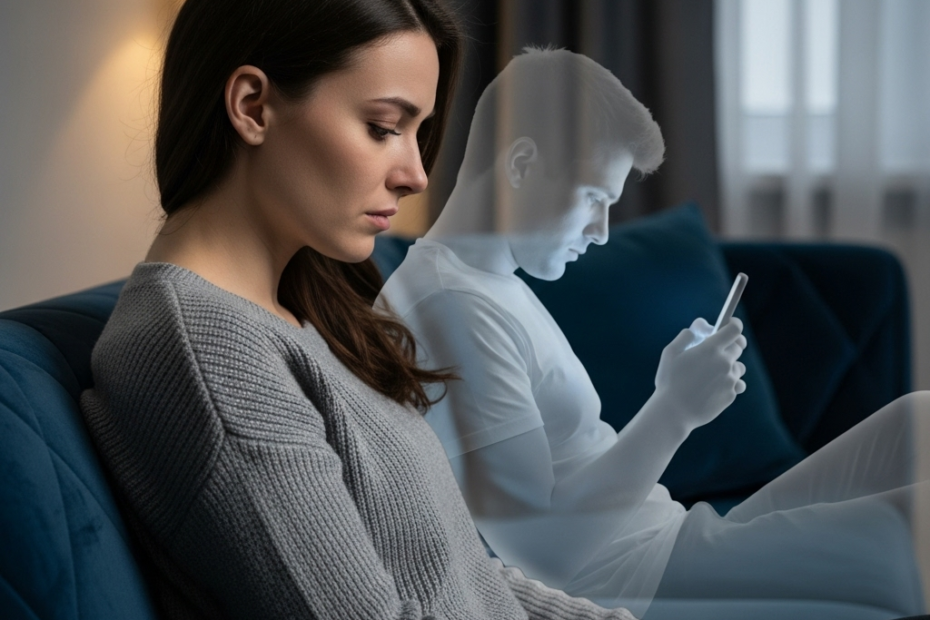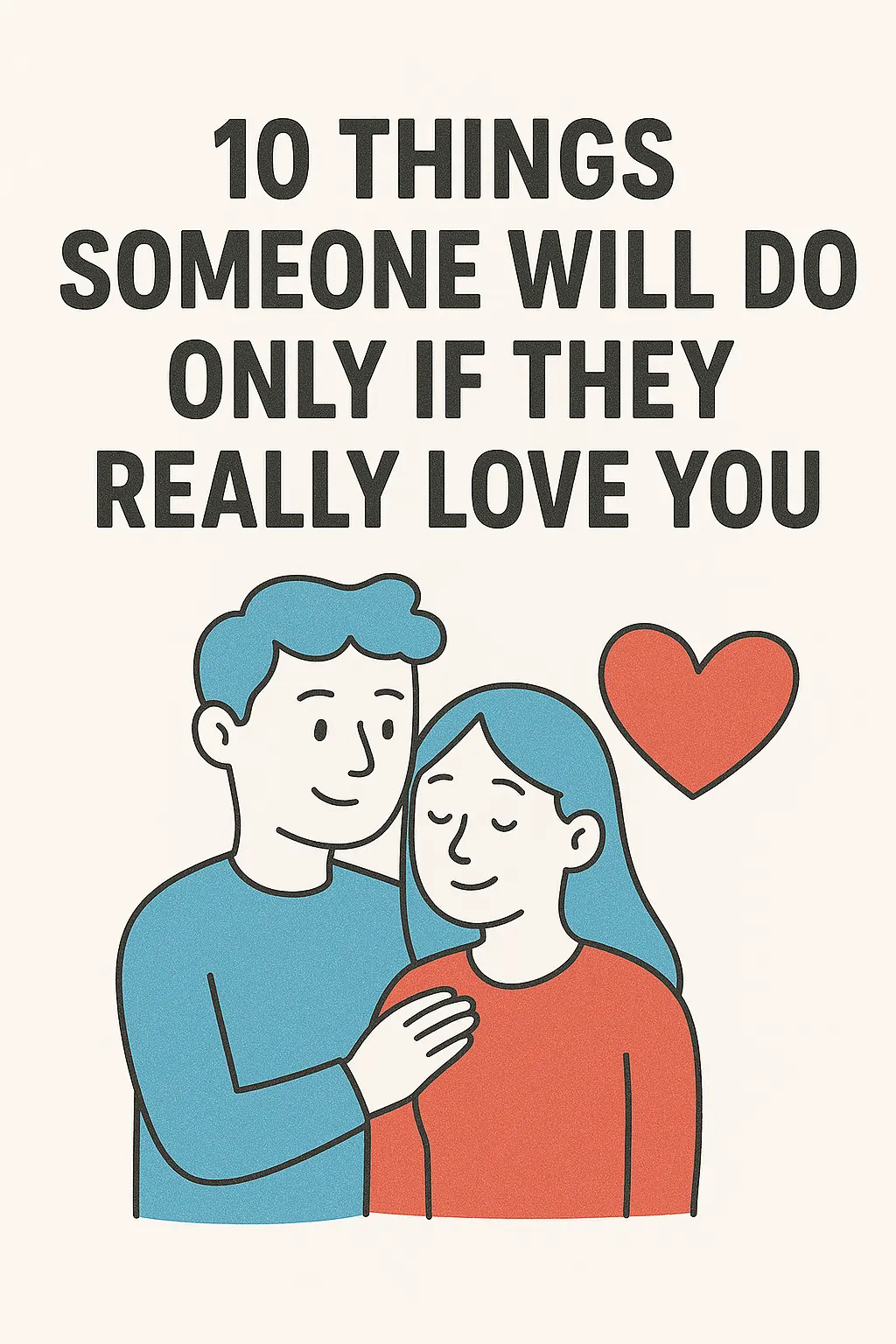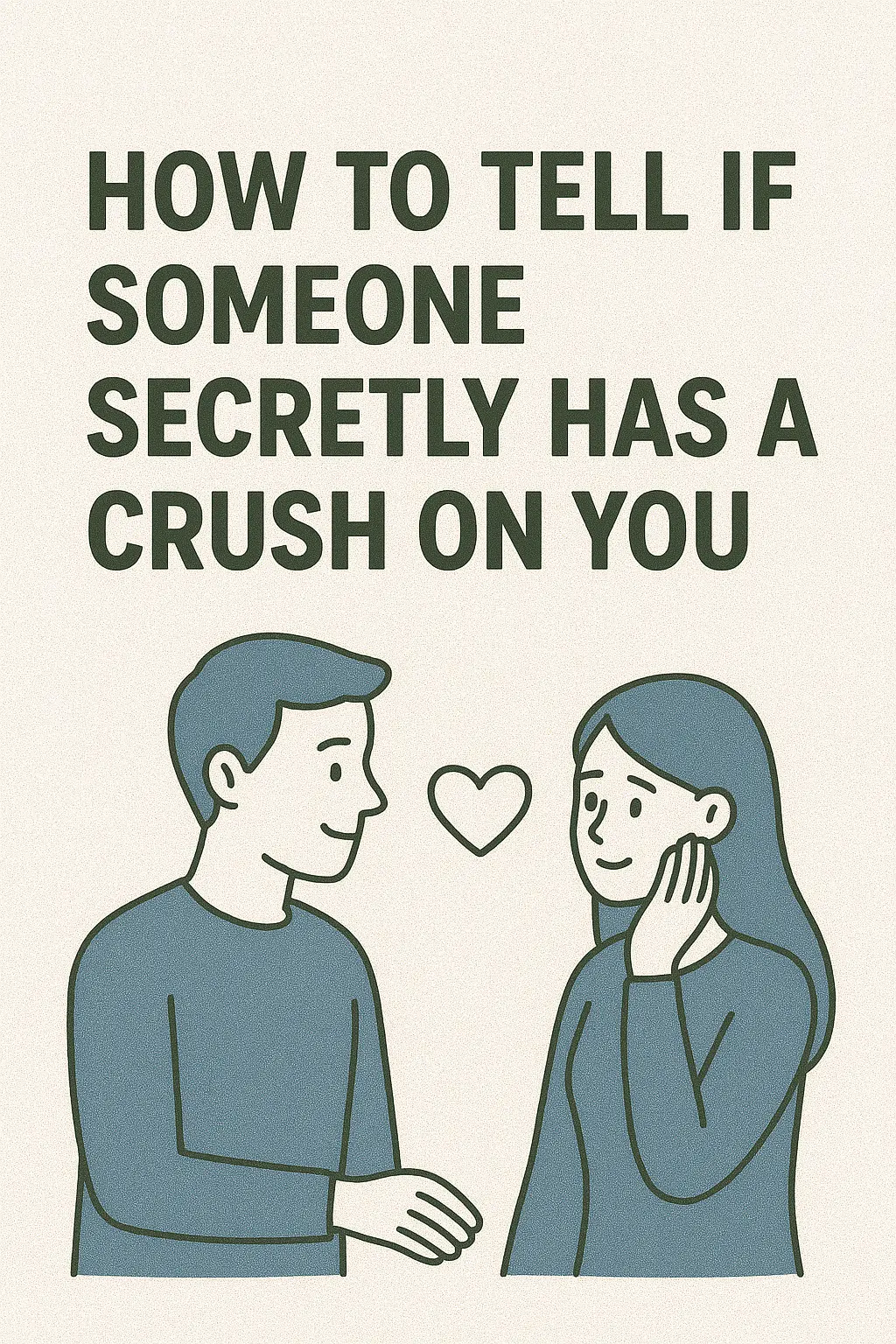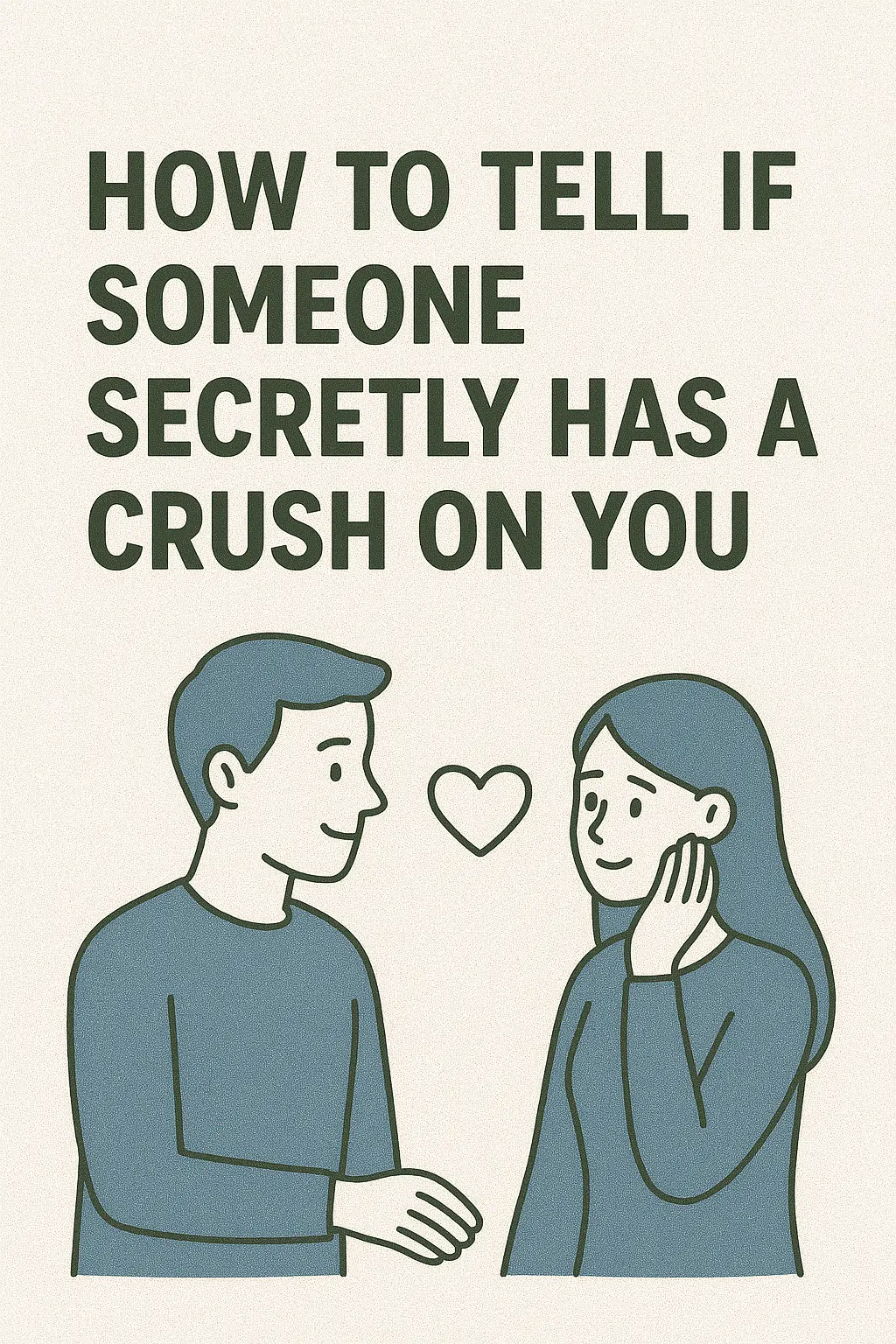The heartbreaking reality of loving someone who won’t let you in, and how to finally stop choosing partners who can’t show up for you.
I’m sitting in my favorite coffee shop on a Tuesday morning, watching a couple at the corner table. She’s leaning forward, animated as she tells him something that clearly matters to her. He’s scrolling through his phone, offering the occasional “mm-hmm” without looking up.
The scene feels painfully familiar.
I’ve been that woman—pouring my heart out to someone who was physically present but emotionally elsewhere. I’ve felt the particular sting of loving someone who seemed to exist behind glass, visible but untouchable. It was like I had asked the universe for a partner, and it sent me a ghost who occasionally remembered to haunt the same rooms I was in. This is the classic, painful dynamic of dating emotionally unavailable men.
On the surface, it looked like a perfect fairy tale. We had the adventures, the laughter, the life that looked great on paper. And yet, it wasn’t. There wasn’t a single moment where I felt emotionally secure; instead, there were many moments where I felt deeply lonely, even when he was right beside me.
It was confusing. Wasn’t this exactly what I wanted? I realized I had focused on what I wanted to do in a relationship, but not on how I wanted to feel.
So, the real question is—why do we get it so wrong? Why do we find ourselves loving people who can’t truly let us in? I decided to diginto the dynamics of emotional unavailability to understand the common pitfalls. Here’s what I found:
1. We Confuse Intensity with Intimacy
I remember the dizzying highs. The whirlwind trips, the passionate moments, the feeling that we were the main characters in a dramatic film. In those “peak” moments, I felt deeply connected. But intensity is not the same as intimacy. Intensity is a spark; intimacy is a slow, steady burn.
Statistically, our brains are wired to remember these intense experiences more vividly, causing us to overlook the vast, empty spaces in between. A study on relationship satisfaction found that long-term happiness isn’t built on dramatic highs, but on consistent, mundane acts of emotional presence. The emotionally unavailable partner is often a master of intensity because it’s a powerful distraction from the real, quiet work of building a secure bond.
What you can do: Step back and look at the baseline, not the peaks. Is your daily reality one of quiet connection, or are you living for the next dramatic high to feel close? A healthy relationship should feel more like a safe harbor than a rollercoaster.
2. They Use “Future-Faking” to Keep You Hooked
“One day, we’ll travel the world.” “When things at work calm down, I’ll be more present.” “You’re the kind of person I could see myself settling down with.”
These promises of a future that never arrives are a hallmark of emotional unavailability. This tactic, known as future-faking, keeps you invested without requiring any present-day emotional effort. It sells you a dream of who they could be, so you don’t focuson who they are right now.
What you can do: Pay attention to actions, not words. As Maya Angelou famously said, “When someone shows you who they are, believe them the first time.” Ground yourself in the present reality of the relationship. Is the “one day” version of them showing up today? If not, you’re in a relationship with potential, not a person.
3. We Become Addicted to Solving the Puzzle
There’s a strange allure to the person who seems like a mystery to be solved. We tell ourselves that if we can just find the right key—be more patient, more understanding, less demanding—we can unlock their heart. This turns the relationship into a project, and our role becomes that of a detective or a therapist.
This dynamic is often rooted in our own attachment patterns. Research in attachment theory shows that individuals with an anxious attachment style are often drawn to those with an avoidant style, creating a painful “anxious-avoidant trap.” The more they pull away, the harder you pursue, convinced you can fix the dynamic. But their emotional unavailability is not a puzzle for you to solve.
What you can do: Put down your magnifying glass. A partner should not be a problem you need to fix. Ask yourself: “If this person never changes, can I be happy?” If the answer is no, you’re not inlove with them; you’re in love with the idea of who you hope they’ll become.
4. We Ignore Our Own Emotional Walls
Sometimes, we are drawn to emotionally unavailable partners because, on some level, they feel safe. Their distance means we don’t have to confront our own fears of true intimacy and vulnerability. Their walls allow us to keep our own walls intact.
It’s a hard truth to face, but my pattern of choosing unavailable men was also a reflection of my own inability to be truly seen. I was great at being the “cool girl” who didn’t need much, but I was terrified of showing the parts of me that were messy, needy, and human. By choosing someone who couldn’t meet my deepest needs, I never had to risk showing them.
What you can do: Do a pre-mortem on your own heart. What are you afraid would happen if you were in a relationship with someone who was fully available? Would you feel smothered? Exposed? Unworthy? Answering this honestly can reveal how you might be co-creating the very distance you claim to hate.
You Have More Control Than You Think
When I met the guy in my story, I thought I had my act together. I was successful, independent, and adventurous. I thought I needed to find someone who was my equal. What I failed to see was that I was great as an individual, but I was a lousy partner. My ambition often meant I couldn’t prioritize another’s needs, and my “even-keel” nature was a result of my inability to be truly vulnerable.
After it ended, I worked on allowing myself to feel sadness and to listen without reacting. I started prioritizing relationships over achievements. And the types of people I began attracting changed dramatically. Asnovelist James Lane Allen says, “We do not attract what we want, we attract what we are.”
If you want to stop dating the wrong person, stop focusing on “finding” the right partner and instead, start “being” the right partner. The journey isn’t about finding the one who will finally let you in. It’s about becoming someone who knows they deserve a home, not just a house with locked doors.
Perhaps this is the most encouraging thought: You’re never in control of who you find, but you are always in control of who you are



